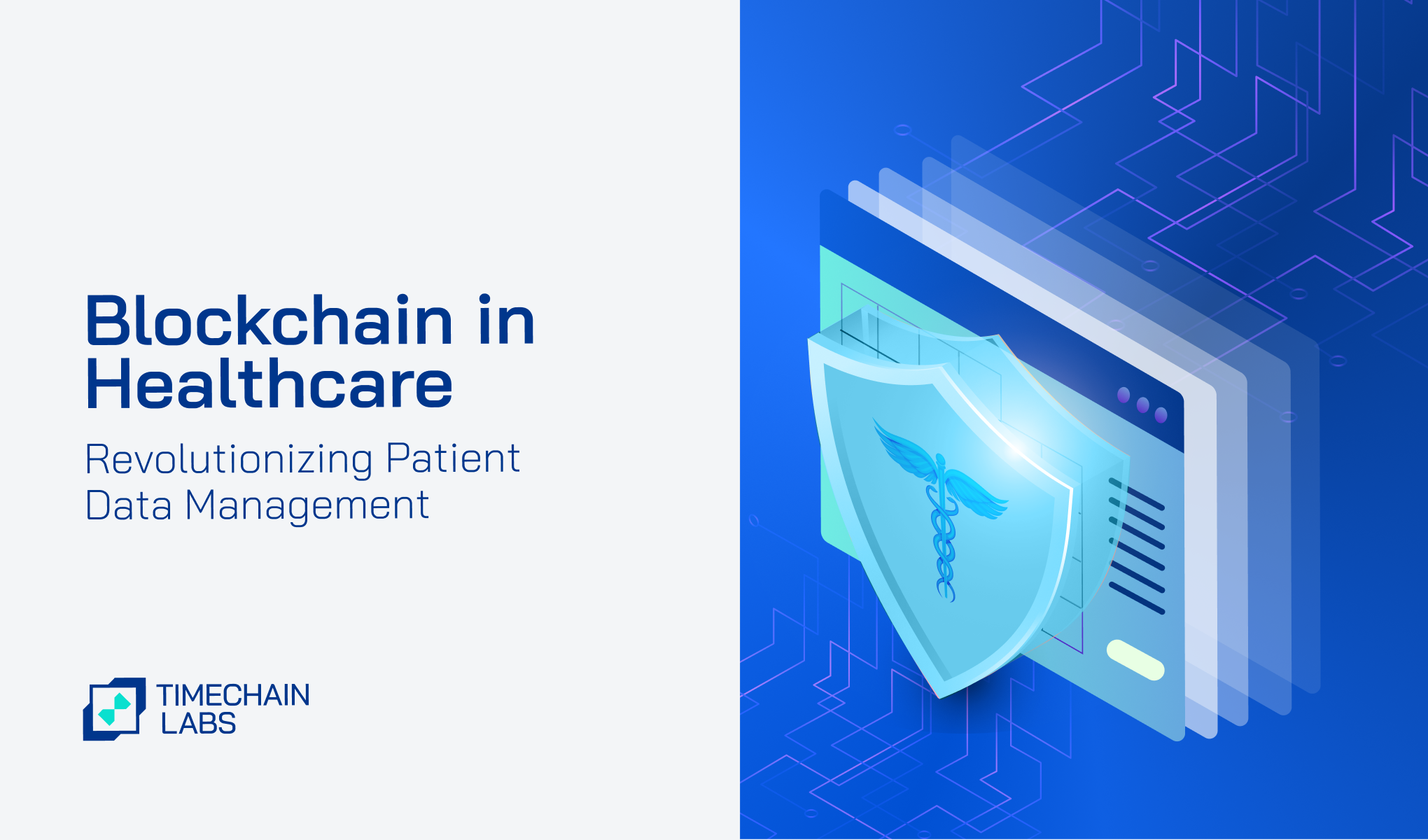The healthcare industry is experiencing a digital revolution with new technologies changing how patient data is managed. One technology that stands out is blockchain. It has the potential to make healthcare data management more secure, transparent, and efficient. This blog will look at the challenges in healthcare, how blockchain can help, practical uses, and real-life examples of its impact.
Challenges in the Healthcare Industry:
The healthcare industry faces several problems when it comes to managing patient data:
- Data Security and Privacy: Patient data is very sensitive and needs to be protected. Despite regulations like HIPAA, data breaches still happen, risking patient privacy.
- Interoperability: Different healthcare systems often have trouble working together, leading to fragmented patient records. This lack of communication can result in incomplete information, affecting patient care.
- Data Accuracy: It's crucial to have accurate and reliable patient data. Mistakes in medical records can lead to wrong diagnoses and treatments.
- High Administrative Costs: Managing patient data involves a lot of administrative work, which can be expensive and take resources away from patient care.
Blockchain as The Solution
Blockchain technology offers several benefits for managing patient data:
- Enhanced Security: Blockchain uses advanced encryption to secure data. Each transaction is encrypted and linked to the previous one, creating a chain that can't be changed. This makes it very hard for unauthorized people to alter patient records.
- Decentralization: Unlike traditional databases, blockchain is decentralized. This means there is no single point of failure, reducing the risk of data breaches and ensuring data availability.
- Improved Interoperability: Blockchain can help different healthcare systems share data more easily. With a unified, distributed ledger, healthcare providers can access a single, accurate version of a patient's medical history.
- Data Integrity and Transparency: Every transaction on a blockchain is time-stamped and recorded, providing a transparent and verifiable history of patient data. This ensures data integrity and allows for traceability.
- Reduced Administrative Costs: Automating data management processes through smart contracts can significantly reduce administrative costs. These self-executing contracts can streamline tasks such as patient consent management and billing.
Blockchain use cases in the healthcare industry:
Use Cases of Blockchain in Healthcare:
- Electronic Health Records (EHRs): Blockchain can create a unified system for storing and sharing patient records. This ensures that all healthcare providers have access to the same, accurate data, improving coordination and patient care.
- Patient Consent Management: Patients can use blockchain to control access to their health information. Smart contracts can automate consent processes, ensuring that data is shared only with authorised parties.
- Clinical Trials: Blockchain can enhance the transparency and integrity of clinical trials by securely recording trial data and ensuring that it cannot be tampered with. This can increase trust in trial results and improve regulatory compliance.
- Drug Traceability: Blockchain can track the production and distribution of pharmaceuticals, reducing the risk of counterfeit drugs entering the supply chain. This ensures that patients receive safe and authentic medications.
- Insurance Claims Processing: Blockchain can streamline the claims process by providing a transparent and immutable record of patient treatments and insurance coverage. This reduces fraud and accelerates claim settlements.
- Telemedicine: Blockchain can secure telemedicine interactions by ensuring that patient data shared during virtual consultations is protected and cannot be altered. This enhances patient trust in remote healthcare services.
Real-Life Case Studies
- MedRec: Developed by MIT, MedRec is a blockchain-based system designed to manage electronic health records (EHRs). It allows patients to control their medical records and share them securely with healthcare providers. MedRec uses blockchain to ensure data integrity and accessibility, enhancing patient care and reducing administrative burdens.
- Guardtime: Guardtime, an Estonian company, has implemented blockchain technology in the country's healthcare system. Their solution, KSI (Keyless Signature Infrastructure), ensures the integrity of patient data by providing a tamper-evident record. This has improved data security and trust in the system, demonstrating blockchain's potential in national healthcare infrastructure.
- Change Healthcare: A leading healthcare technology company, Change Healthcare has integrated blockchain into its Intelligent Healthcare Network. By leveraging blockchain, they have enhanced the transparency and traceability of healthcare transactions, improving efficiency and reducing costs. This implementation has shown how blockchain can streamline complex healthcare processes.
- MedicalChain: MedicalChain uses blockchain to create a secure platform for managing and sharing EHRs. Patients can grant access to their medical records to healthcare providers, ensuring that their data is always up-to-date and accurate. This has improved patient outcomes and fostered greater trust between patients and providers.
Blockchain technology is poised to transform the healthcare industry by addressing many of the critical challenges associated with managing patient data. By offering enhanced security, improved interoperability, and reduced administrative costs, blockchain provides a robust solution for many of the industry's current inefficiencies. Real-world applications and case studies, such as those from MedRec, Guardtime, Change Healthcare, and MedicalChain, demonstrate the tangible benefits and potential of blockchain in healthcare.
As the digital revolution continues to unfold, the adoption of blockchain could lead to more secure, transparent, and efficient healthcare systems. This not only improves patient care and outcomes but also fosters greater trust and collaboration among healthcare providers. Embracing blockchain technology could be the key to a more integrated and resilient healthcare ecosystem, paving the way for future innovations and advancements.
